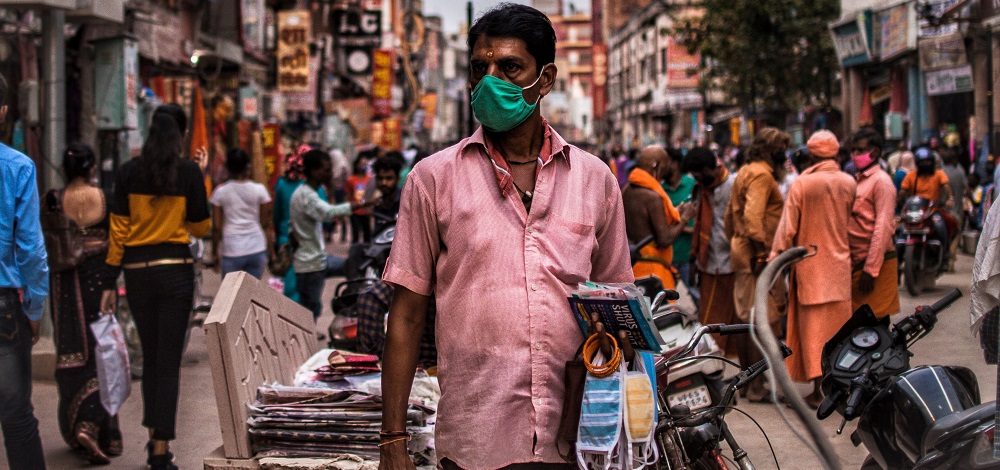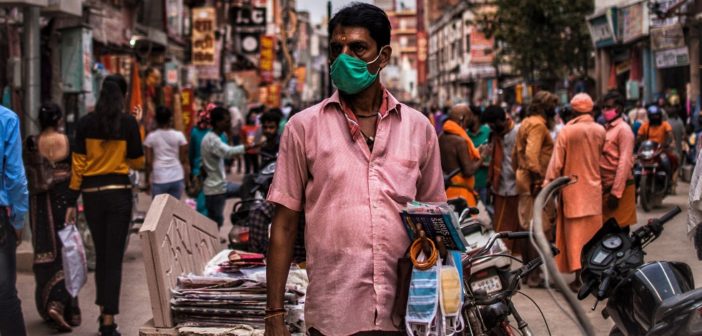
Published with permission, courtesy of the BESA Centre.
BESA Center Perspectives Paper No. 1,800, November 5, 2020
EXECUTIVE SUMMARY: India’s “untouchables,” the Dalit Muslims, are caught in a vicious circle of poverty across the country, and their plight is only worsening during the COVID-19 pandemic.
India, one of the most populous countries in the world, is second to the US in COVID-19 infections, with 7.65 million cases and 116,000 deaths as of October 21, 2020. The first COVID-19 case in India was reported on January 30, and the country went into lockdown on March 24. In the last decade, India experienced outbreaks of the Nipah virus and swine flu.
India’s health care system is not equipped to cope with a massive crisis on the order of COVID-19 (or coronavirus). As there is not yet either a cure or a vaccine for the virus, the Indian Ministry of AYUSH (Ayurveda, Yoga and Naturopathy, Unani, Siddha, and Homeopathy) has been promoting an herbal formulation called AYUSH Kwath (a homemade herbal beverage) for general use. The drink is said to boost the immune system. India has also put restrictions in place like social distancing and home isolation to reduce the speed at which the virus can spread.
The government looked to both the public and private sectors, as well as allopathic and non-allopathic medical systems (unani, ayurvedic, and homeopathic) to “flatten the curve” of coronavirus cases and deaths. The crisis has tested India’s police, transportation, tourism, food supply, and medical systems. In the last of these, infection prevention and control practices at Indian health-care facilities are often inadequate.
Some of the worst sufferers of the COVID-19 pandemic have been India’s so-called “untouchables,” the Dalit Muslims. This group has faced discrimination for a variety of reasons, foremost among them their poverty.
In 1947, India gained independence from Britain, and its new constitution formally banned the practice of untouchability based on caste. (The Hindu caste system can be traced back over a millennium.) Four main groups make up the caste system: Brahmins, Kshatriyas, Vaishyas, and Dalit Muslims, or “untouchables.” The country’s constitution enshrines egalitarian principles, including social equality and non-discrimination, but the untouchables continue to be treated as socially unequal. Ever since independence, Dalit Muslims—a minority in the predominantly Hindu country—have suffered systematic discrimination in areas including employment, education, and housing.
Dalits often work as manual workers, leather workers, street sweepers, and cobblers. Many work in sanitation, either as municipal solid waste collectors or as fecal sludge cleaners who clean septic tanks and sewers.
According to official figures, nearly 68% of India’s population lives in poverty. Of that group, at least 30% earn less than Rs 70 ($0.95) a day. Ninety percent of these people are Dalits.
The Dalits are caught in a vicious circle of poverty across the country, and their plight has only worsened during the COVID-19 pandemic. In some instances, they have been denied medical and food assistance.
Even during this time of social isolation and lockdown, Dalits have suffered caste-driven atrocities like abuse, rape, the branding of women as witches, forced tonsure (shaving of the head), and even murder. Incidents of discrimination and assault have increased in number with the return of migrant workers to villages after they lost jobs in big cities. Upper caste people have spread thorns outside Dalit colonies to ensure they don’t move from their area, ostensibly to ensure compliance with coronavirus guidelines. Shops have refused to supply essential commodities to Dalits because of the perception that they are unclean.
It is telling that Amnesty International has criticized the government for failing to provide adequate protection for sanitation workers. More must be done to ensure the safety of the Dalit Muslims, particularly at this time of crisis.






